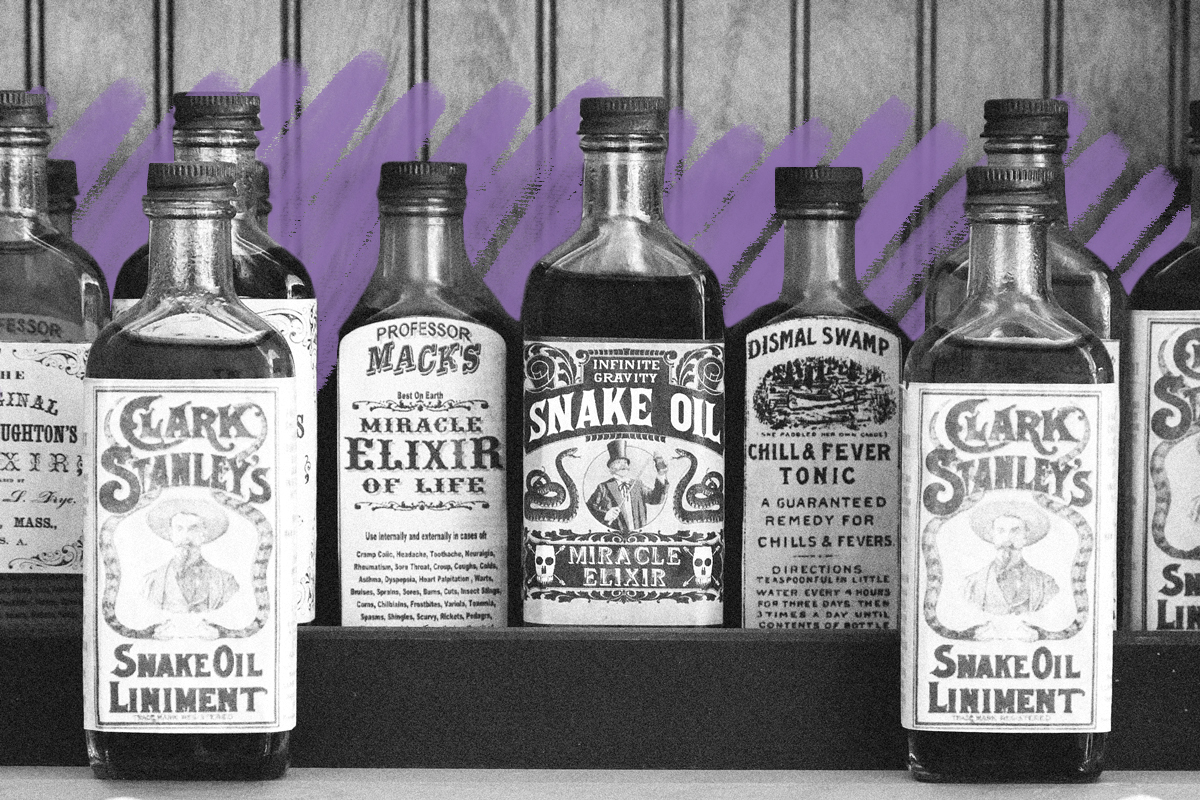Snake oil wasn’t always a scam.
In the popular lexicon, “snake oil” refers to a scam product or bogus claim, particularly related to health. That connotation originated with one of history’s most notorious American hucksters, Clark Stanley, who sold “snake oil” he claimed would cure pain and rheumatism in the late 19th century.
Stanley would demonstrate to audiences how he would kill and boil a rattlesnake, letting its fat rise to the surface. But his Snake Oil Liniment was, to be clear, a scam. Not only were his claims about rattlesnake fat unverified, but the actual product he was selling didn’t even contain snake oil — it was a combination of capsaicin from chili peppers, mineral oil, turpentine, and tallow, probably from beef.
If Stanley’s supposed cure-all had contained a specific kind of snake oil, it might have been at least somewhat effective. Oil from Chinese water snakes has been used for centuries in traditional Chinese medicine to treat arthritis and other joint pain. Railroad laborers who immigrated to the U.S. from China shared it with other workers after long, painful days, which may have contributed to the popularity of generic snake oil as a treatment.
Modern research has shown this particular Chinese snake oil may indeed have health benefits. It’s packed with more omega-3 fatty acid than salmon, and may help with improving cognitive function, reducing blood pressure, and lessening inflammation. Genuine rattlesnake oil, on the other hand, is, well, snake oil — in every sense.









